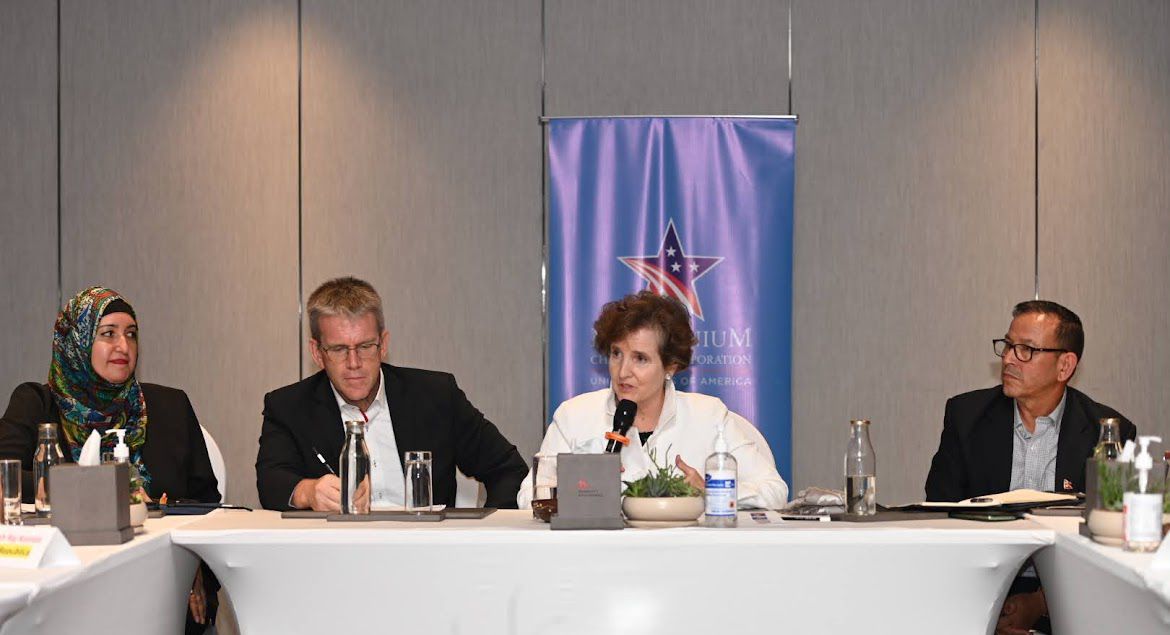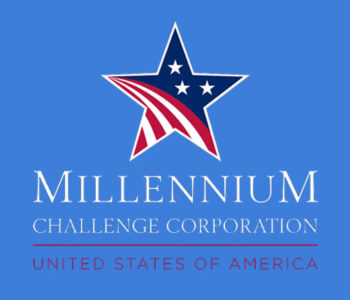MCC CEO publicly affirms full acceptance of Nepal’s 12-point explanatory note

KATHMANDU: The CEO of the Millennium Challenge Corporation (MCC), Alice Albright, has officially confirmed the organization’s full agreement and acceptance of Nepal’s 12-point explanatory note, which is an integral component of the MCC Compact agreement ratified by Nepal’s federal parliament.
This significant development marks the first time that a top MCC official has publicly endorsed the 12-point explanatory note, addressing concerns raised by some political leaders. The US Embassy in Kathmandu had previously clarified that the MCC had acknowledged the interpretive declaration last year, emphasizing Nepal’s Constitution’s primacy over the MCC Nepal Compact.
The MCC Nepal Compact, a $500 million grant from the US for power and road infrastructure projects, was ratified by the House of Representatives on February 27, 2022, amidst controversy and protests. This agreement represented the largest financial commitment from the US to Nepal. It had faced delays due to allegations of compromising Nepal’s sovereignty.
The Compact was ultimately approved alongside the 12-point explanatory note, which emphasized its absence of military or security components and its detachment from the US Indo-Pacific strategy. Importantly, it reiterated Nepal’s right to withdraw if the US violated these terms.
Furthermore, the interpretative declaration appended to the MCC Compact by the Cabinet clarified that Nepal’s Constitution would supersede the Compact and related agreements. It underscored Nepal’s non-involvement in any American strategy, military alliances, or security alliances, including the Indo-Pacific Strategy, as a party to the Compact.
During a media interaction in Kathmandu, CEO Albright expressed confidence that MCC projects in Nepal would be completed within the stipulated five-year deadline, commencing from August 30, the official start of MCC project implementation.
Albright’s visit to Nepal, during which she met with prominent leaders including Prime Minister Pushpa Kamal Dahal, CPN-UML Chairman KP Sharma Oli, and Nepali Congress (NC) President Sher Bahadur Deuba, revealed widespread political support for expediting MCC project implementation.
Albright stressed the importance of adhering to the legislated five-year timeline for MCC projects, emphasizing that similar projects had been successfully completed worldwide within that timeframe. She expressed optimism that Nepal’s project would follow suit.
US Ambassador to Nepal Dean R. Thompson confirmed that the procurement and contracting processes for the MCC project had already commenced, with transparency as a top priority. He stated that there was ample time, four years and 11 months, to ensure the work was completed on schedule.
Regarding concerns over higher-than-expected tender bids, Khadga Bisht, CEO of MCA-Nepal, clarified that there were no design flaws in the transmission line project. He acknowledged potential issues with understanding the tender documents and requirements. Bisht indicated openness to a re-tendering process after discussions with potential bidders, emphasizing that project timelines could be adjusted accordingly.
Deputy Vice President of MCC, Jonathan Brooks, highlighted that encountering such tendering challenges was not unique to Nepal, expressing confidence in resolving such issues through collaborative solutions, as had been done in other countries.












Facebook Comment